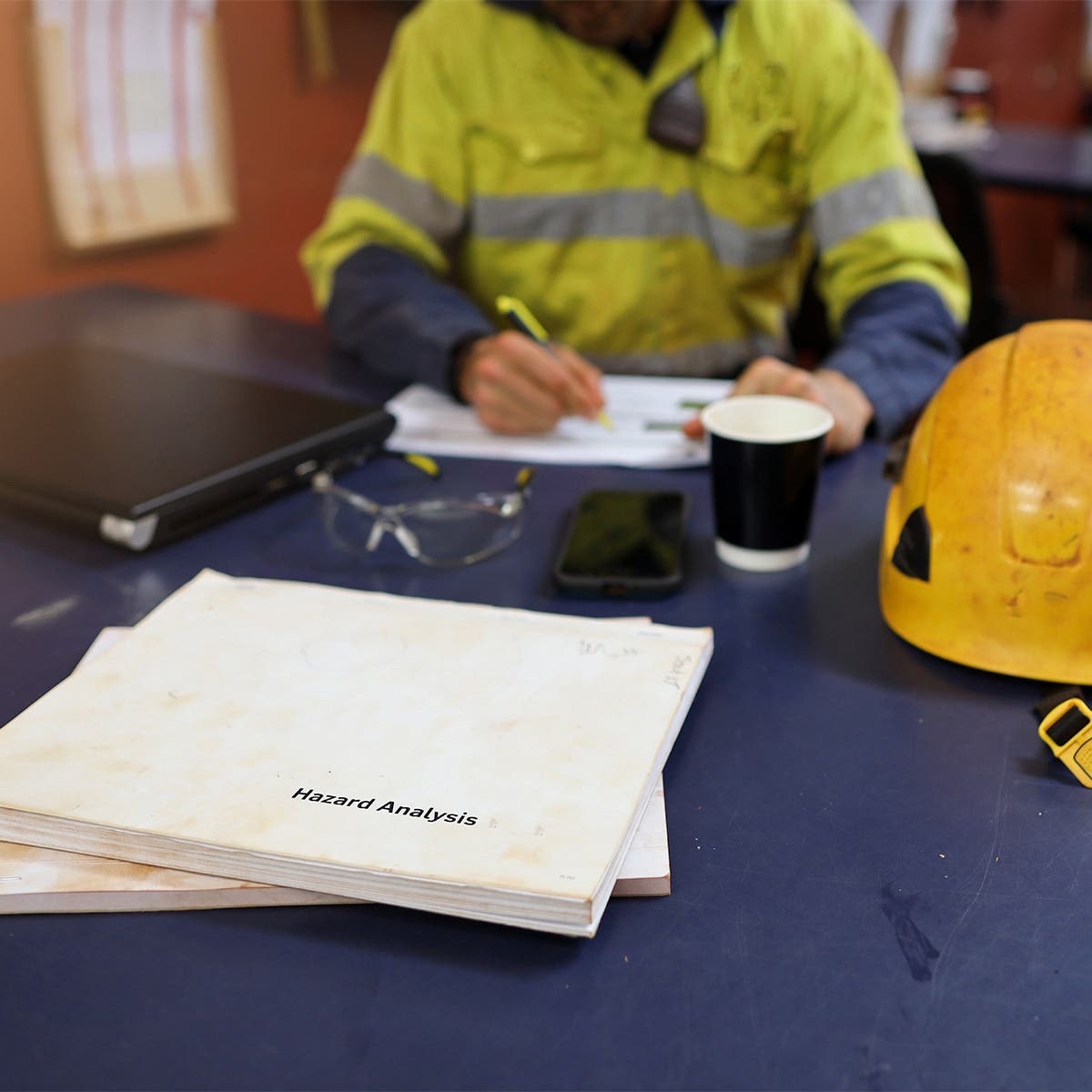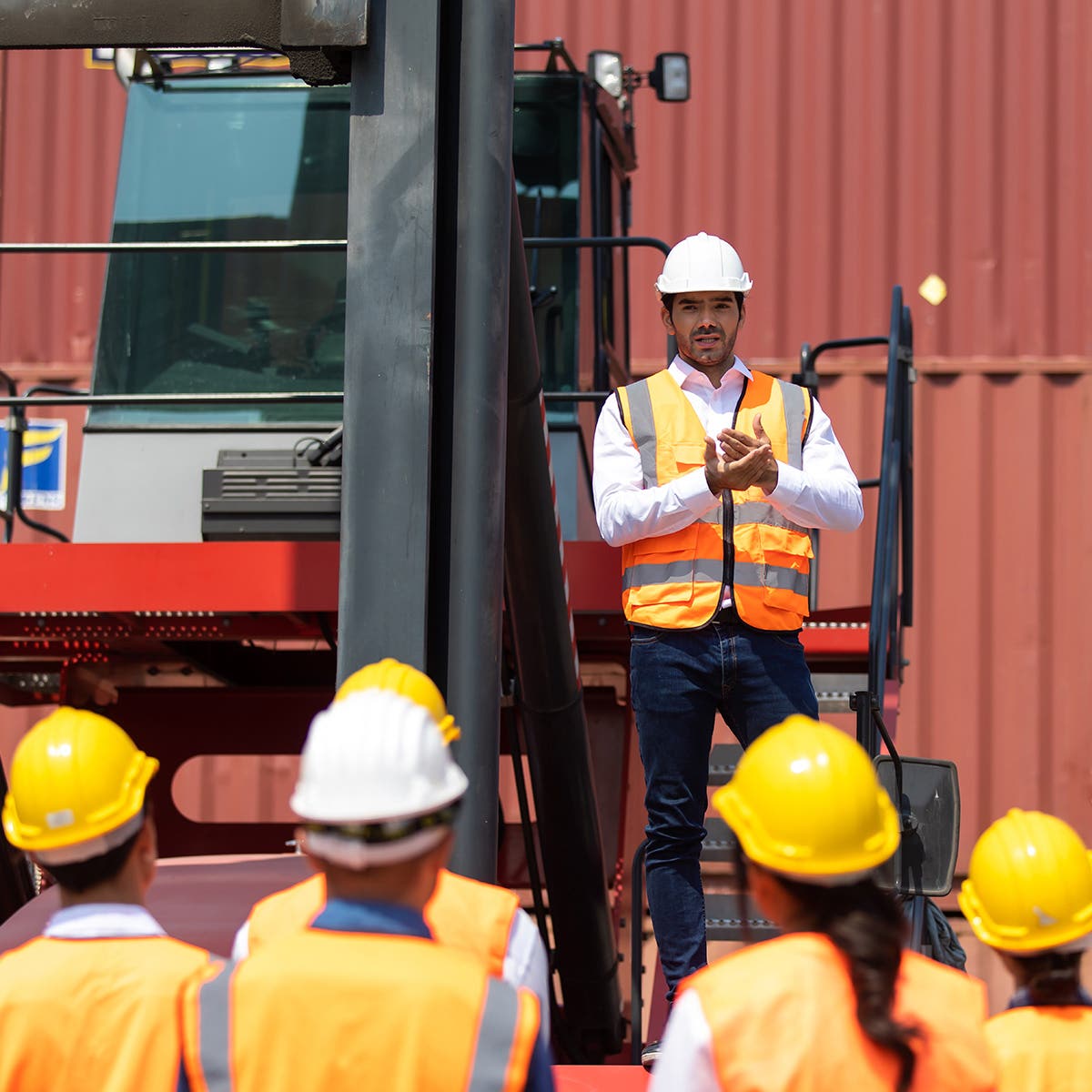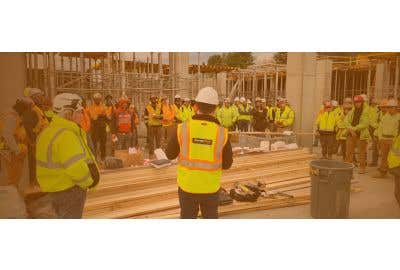*Disclaimer*
The information contained on this page is for promotional and informational purposes only. All equipment should be used by trained professional tradesmen who have been trained how to use the equipment described on this page, and understand the risks of their work. PowerPak assumes no responsibility for errors or omissions in the use or misuse of any product purchased. In no event shall PowerPak be liable for any direct, special, indirect, consequential, or incidental damages or any damages whatsoever, whether in an action of contract, negligence or other torts, arising out of or in connection with the use of this information or the contents of this page. PowerPak reserves the right to make additions, deletions, or modifications to the contents on this page at any time without prior notice.
You may not have heard the term "toolbox talk" before, but you've likely attended many and maybe conducted a few without realizing it.
A toolbox talk is an informal group meeting that covers a specific topic. Usually, toolbox talks cover a particular safety concern on a jobsite, and they are conducted as a quick stand-up meeting before the start of the day. You may know them by a different name, like a safety meeting or a morning minute.
Whatever you want to call them, they are simple, straightforward, and effective. Let’s get into how to conduct a toolbox talk.
Why is it called a Toolbox Talk?
As mentioned, a toolbox talk is a quick, informal safety meeting. The idea is to make this meeting as easy as possible to ensure that it actually happens.
A safety meeting that involves a PowerPoint, guest speakers, visual aids, and demonstrations requires a lot of planning and scheduling. There are too many opportunities and reasons to postpone or cancel the safety meeting with all those moving parts.
On the other hand, a toolbox talk doesn’t require any of those things. It is treated like a casual discussion that happens on the jobsite. Where on the jobsite? Well, it could be anywhere. Maybe in the parking lot, maybe in the middle of the work area, or maybe huddled around where the tools are locked up. You know the toolbox. You get it.
Don’t get me wrong, a toolbox talk can have visual aids if needed, but they should be kept simple. Remember, the concept of a toolbox is to replicate the casualness of an unscheduled discussion around the toolboxes. You wouldn’t bring a full presentation to an unscheduled chat, but you might pick up a nearby lifting chain to explain why proper use is important.
Picking a Topic
Most commonly, a toolbox talk is regarding jobsite safety. You may decide to have a "one-off" toolbox talk because something specific is happening on your jobsite today. Like, if welding is scheduled to start today. You might have a quick toolbox talk on proper safety procedures about welding, such as torch assembly or where to store compressed gas safely. Or maybe today is the day you are beginning demo, and you may want to remind your team of the first aid procedure and eyewash locations.
Sometimes, it’s not that easy to come up with a topic. It’s a good practice to plan on having a quick reoccurring toolbox talk at the beginning, every week, or every day. The issue is that picking a topic can quickly become a challenge. After a few weeks, you may feel like you are running out of subjects to cover.
A quick tip is to make sure each toolbox talk is hyper-focused on one specific thing. Let's use welding as an example again. It may not be helpful to discuss welding safety as a broad topic, but the workers might benefit from hearing about how to assemble the specific torches used on that jobsite. Even if they already know, discussing it may bring up some additional unknown information.
It's important to be relevant. Think about the work being done and pick a topic that pertains to that work. Think about the individuals on your crew and choose a topic relevant to them. Considering everything and anything, including the weather, outside contractors or visitors on-site, slip hazards, mental health checks, or company policies.
Don't waste people's time with topics that don’t pertain to them. A toolbox talk about fall protection isn't valuable for a crew of cement truck drivers.
Researching a Topic
This may sound contradictory to the “keep it simple” mantra, but it’s important to be knowledgeable on any topic you discuss.
These are safety topics, so it's important that you know your stuff. If you're lucky, you can preach what you know, but if you need to cover a safety topic that you don't have a strong background in, a little research goes a long way. You don’t want to be misinforming your crew on something like electrical safety, and you’ll want to be able to answer their questions.
It’s not often that you’ll be covering topics that are entirely foreign to you because toolbox talks are meant to serve as a reminder of more compressive training that workers are required to have. But occasionally, you’ll need to conduct a toolbox talk on a subject like ladders. You know ladders, you use them all the time, but you may not know the specific weight rating for a Type I compared to a Type IA ladder. You may not have thought about ladder compliance. Doing a little research before your toolbox talk can help you fill in some of the blanks.
Even if you have extensive experience on a subject, it is important to double-check your facts. Remember, things change, and something you learned on the jobsite 10-15 years ago may not be the right way to do it with modern equipment. Considering how quickly everything develops now, you may need to refresh your knowledge on any subject every couple of years.


Using fall protection as an example, you may have extensive experience using lanyards because those were the go-to solution 5+ years ago. But you’re not going to want to conduct a toolbox talk on lanyards if the crew is equipped with SRDs, and you’re going to want to have some answers to any SRD related questions. Some basic research and prepared points will help you navigate the discussion. Your research could be as easy as reading an article on SRD's.


Just because toolbox talks are informal discussions doesn't mean they don't have to be engaging. They should be as engaging as your regular conversations. When you usually speak with someone, you don't want them to zone out. That's the attitude you should bring to your toolbox talk.
And remember, if it’s the beginning of the workday, you don’t want to lull everyone back to sleep. You want to use this as an opportunity to get them to start their day by thinking about safety first.
Be Engaging
You can involve people in the discussion, keep the conversation moving, and be informative. If you have visuals, use them. When talking about how to field test a dielectric glove, it is better to show the workers rather than describe it with words alone.
A toolbox talk that lacks engagement can be worse than not doing a toolbox talk at all because, in both instances, the workers didn’t retain anything new, but the non-engaging toolbox talk took time out of everyone’s day.
Delivery
Be aware of how you are delivering your toolbox talk. Like poor engagement, poor delivery can do more harm than good.
You want to be confident in the subject matter and be an authority on the topic. No one wants to take safety advice from someone unsure of what they are saying.
Don't be too rigid on the format. It's not a formal presentation, and people should be able to interject or join in as needed. One of your goals should be getting workers involved in the conversation. Have them share their experience and thoughts on the topic.
Ask questions to assess if the workers understand what is being presented. How you present information might make sense to you but maybe lost on others, so it is important to check and see if your crew is following your toolbox talk, and if not, you can take it as an opportunity to switch gears and figure out where they are getting lost.
Naturally, your delivery will only get better the more you conduct toolbox talks.
Safety is Your Top Priority
Although toolbox talks can cover a wide variety of topics, they are mostly intended as an opportunity to discuss jobsite safety. Jobsite safety is what PowerPak is all about. When you need to equip your jobsite with safety gear, PowerPak has it all.
From first aid kits to fire extinguishers to fall protection and more. Call or visit PowerPak.net today to find out more.







